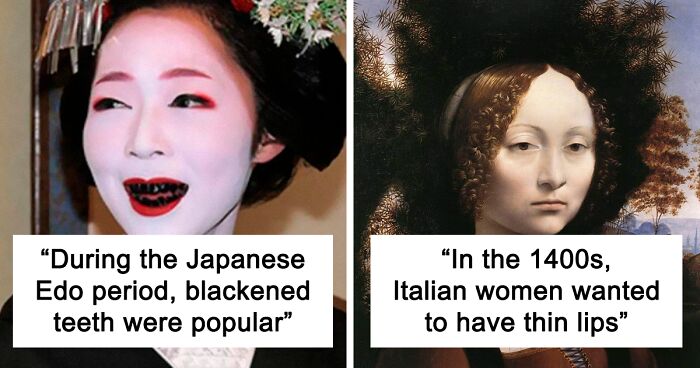
14 “Obscure Beauty Trends” Throughout History That Sound So Bizarre Now
Today the global beauty industry is worth $532 billion and our demand for things to improve our looks feels like it has never been bigger. But the wish to look our best is as old as history itself, and people in the past were just as eager to go great lengths to fit beauty standards of the time. And trust me, they were heckin’ weird. Like weird squared.
The TikToker Zachary Margolis has collected some of the most eyebrow-raising, obscure, over-the-top and plain dangerous historical beauty trends that he shared in a series of viral videos for his “Offbeat History” account.
From Romans whitening their teeth with urine to 18th-century women sculpting their enormous wigs with lard, it makes you wonder whether today’s beauty favorites like the ‘no makeup’ makeup look, laminated brows, and brightly colored hair will look just as freaky in hundreds of years.
@offbeathistory Obscure Beauty Trends 💄Do not try these at home. #makeuproutine #beautytips #learn
♬ Blue Blood - Heinz Kiessling & Various Artists
This post may include affiliate links.
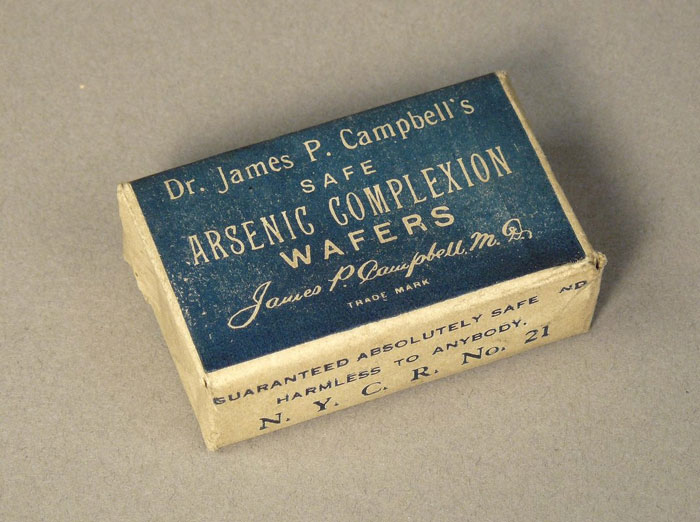 In the 19th century many women ate deadly arsenic wafers to whiten and even out their complexions. Some of the side effect include cancer, baldness, epilepsy. In 1902 you could actually buy arsenic wafers from Sears.
In the 19th century many women ate deadly arsenic wafers to whiten and even out their complexions. Some of the side effect include cancer, baldness, epilepsy. In 1902 you could actually buy arsenic wafers from Sears.
They knew it was dangerous by that time, so the manufacturers had to claim otherwise.
Load More Replies...“That’s why I always use Dr. James P. Campbell’s Arsenic Complexion wafers. They are 10x safer than other leading brands”
Because other leading brands use lead instead of arsenic? ;P
Load More Replies...They would eat arsenic to diet and powder their faces with arsenic to whiten
Doctors in those days recommended a lot of "SAFE" deadly formulas for the beauty babes!
makes you wonder about what doctors of today recommend and if in 100 years people will be horrifyingly making fun of us.
Load More Replies...And Libertarians wonder why we don't trust the freemarket to regulate itself.
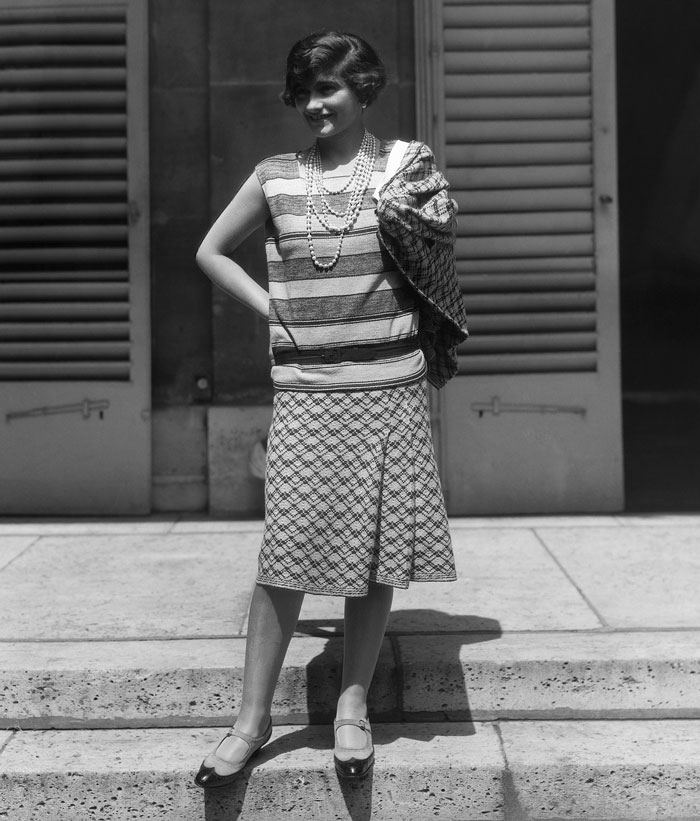 In the mid-1920's, a bronze, suntanned complexion became popular after Coco Chanel fell asleep on her yacht on the French Riviera. The suntan became a status symbol for a person who could afford sunny vacations, especially for those privileged enough to travel during the winter.
In the mid-1920's, a bronze, suntanned complexion became popular after Coco Chanel fell asleep on her yacht on the French Riviera. The suntan became a status symbol for a person who could afford sunny vacations, especially for those privileged enough to travel during the winter.
Before withe skin was considered "noble" because poor were forced to work outside and got tanned...
Don't know why you got downvoted - you're absolutely right!
Load More Replies...Note that people who were actually brown or Black were not afforded the same envy. Weird times.
She was lucky all she did was tan. If I'd fallen asleep in the sun, I would have had to be admitted to the burn unit at the hospital!
Load More Replies...I wonder how many people who think tans are healthy are also racist. 🤔
 In the middle ages the forehead was considered the most beautiful part of the woman's face. Many women removed their eyelashes to accentuate their foreheads. They also plucked their hairlines and eyebrows to achieve a long and oval face.
In the middle ages the forehead was considered the most beautiful part of the woman's face. Many women removed their eyelashes to accentuate their foreheads. They also plucked their hairlines and eyebrows to achieve a long and oval face.
Oh, me too! Too bad I missed the boat and was born 200 or so years to late.
Load More Replies...That explains all the high foreheads in Medieval art. Picture above is Renaissance, though.
You can see in many portraits that the sitters are basically without eyebrows. And not just the women, the men too. Thin lips and no eyebrows was considered THE look. Just tells you how much taste changes.
Interesting! I noticed this in art from the era, but I assumed people just couldn't draw. Whoops!
As an individual with no natural eyelashes and a massive fod, I'd have been chased like the LYNX advert
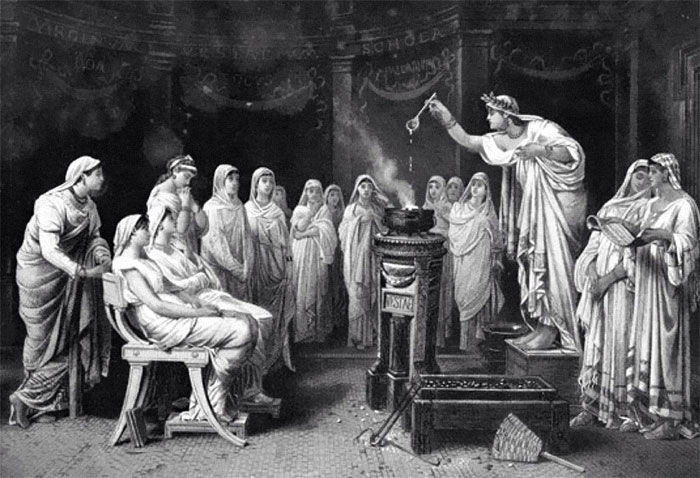 To white their teeth, Romans would rinse their mouth with urine. Specifically urine shipped in from Portugal.
To white their teeth, Romans would rinse their mouth with urine. Specifically urine shipped in from Portugal.
Well-aged urine that hadn't been refrigerated during transport, because refrigeration didn't exist! Tasty!
I want to know how many regional pees they went through before they landed on Portugal having the best
In reality it was not a custom of the Roman citizens of Italy or of other subjugated territories, but it was typical of the citizens of Spain, as is well known from the poem 39 of Catullus, who made fun of Egnatius for this habit.
Thanks, I got on here to say that. The Romans used to make fun of the Spaniards for doing this.
Load More Replies...Because the rain in Spain falls mainly on the plain and probably drains into Portugal?
Load More Replies...Urine was used in textiles in many places too. Apparently the urine of ginger people was particularly sought after.
Urine is used when fulling wool because uric acid and ammonia cause the fibers to expand and make the fabric denser, warmer, and more water resistant. The fabric would be beaten by stomping on it in a trough (with bare feet) or beaten like it was a butter in a churn. After it was washed, the quality of the fabric was much better than when it was first woven. ...///... You can achieve something similar by washing wool fabric (this works particularly well with knitted fabrics) in a hot washer followed by a hot dryer. I do this when I'm making coats. It's the process used to make boiled wool.
Load More Replies... 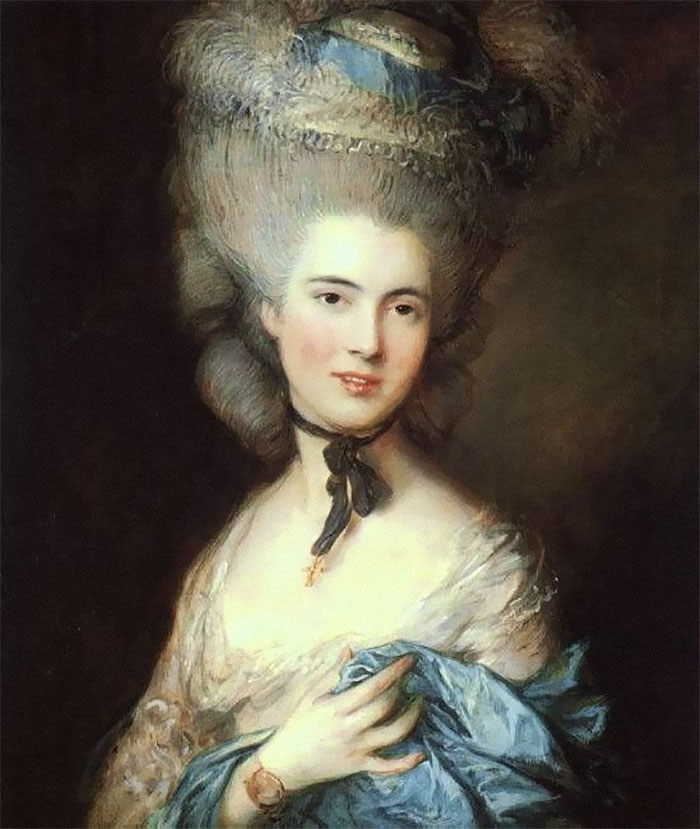 In the 18th century, before invention of hairspray, women would use lard to sculpt their wigs. Yes, lard. One of the downsides is that the wig would become a literal rat's nest. Sometimes rats would live in the wig for weeks. Women had to sleep with cages around their heads to keep the rats away.
In the 18th century, before invention of hairspray, women would use lard to sculpt their wigs. Yes, lard. One of the downsides is that the wig would become a literal rat's nest. Sometimes rats would live in the wig for weeks. Women had to sleep with cages around their heads to keep the rats away.
And at least some people whitened the wigs with flour, which meant they were basically wearing a pancake on their heads instead of hair. You bet the bugs loved it!
That was one reason for the French Revolution. Nobility used so much flour for their wigs that almost nothing was left for bread and bread became unaffordable.
Load More Replies...That's a myth. Wigs were taken off at night and rats are much too big to live in a wig still in use. Not to mention that people being in a position to wear elaborate hairstyles in that time, were also in the position to have someone to keep the rats out of their houses. Rats were generally feared and despised - you didn't just live with them if you had the choice.
they didn't. no one slept with their wigs on. this whole post is nonsense.
Load More Replies...You are aware that people used to take off their wigs at night right??? Nobody sleep with cages arond their heads, the weight of the wig itself was too heavy for the neck, sleeping would be too dangerous with a wig.
They didn't sleep in their wigs! They had lice in them, not rats.
Lard is like the opposite of hairspray. It’s more like hair grease or a greasy gel. Would give you better chances at a wet or slicked down look than a floof.
This is true, but what they were actually doing was combing pomade (which is greasy but not lard) through their hair and then applying powder in layers. This gave hair a lot more body to achieve these styles. A bit like root boost powder on steroids.
Load More Replies... 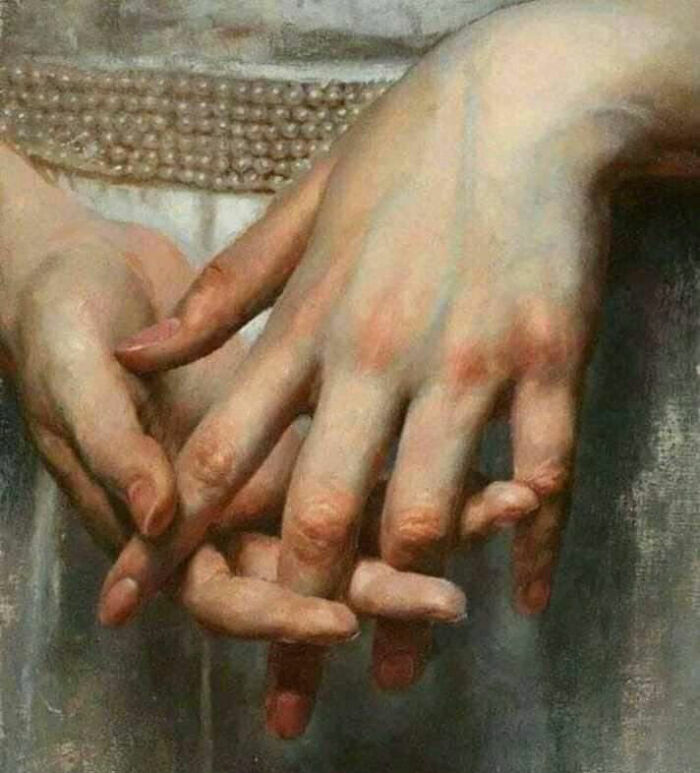 In pre-revolution France, accentuated veins were all the rage. Some people would color their veins with blue pencil to make them pop. Others would use leaches to make their veins more noticeable.
In pre-revolution France, accentuated veins were all the rage. Some people would color their veins with blue pencil to make them pop. Others would use leaches to make their veins more noticeable.
Visible veins meant they didn't work in the sun. It was a sign of status.
Only when your skin was white enough you could show your "blue blood", so everyone recognized you were aristocratic!
I'd have been super popular then, I look like the Invisible Man after he's been clobbered with the spade
I think I recall veins being very popular in Ancient Egypt as well - they would also accentuate them with make up. (Maybe I should say recall reading.... I'm not quite that old!)
Something to do with the fragility of their whiter than white skin. I remember holding my dad's hand as a kid and wishing that when I grew up, I would have veins that stuck out on my hands like his. I got my wish!
Me, I just thought it was interesting. A little glimpse at the inside of my body and its structure.
Load More Replies...Long face, high forehead, visible veins, thing lips--not to be trite, but I was definitely born in the wrong era.
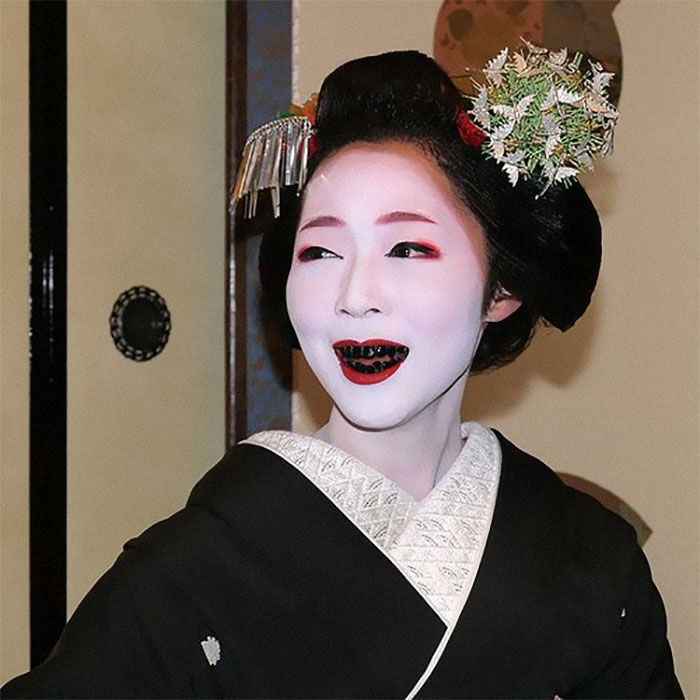 During the Japanese Edo period, blackened teeth were popular amongst aristocrats and married women. Blackened teeth were considered a sign of beauty and the practice helped preserve teeth into old age. In 1870, this practice was banned by the Japanese government. Blackening teeth wasn't just popular in Japan, and some people still practice this today.
During the Japanese Edo period, blackened teeth were popular amongst aristocrats and married women. Blackened teeth were considered a sign of beauty and the practice helped preserve teeth into old age. In 1870, this practice was banned by the Japanese government. Blackening teeth wasn't just popular in Japan, and some people still practice this today.
People use charcoal toothpaste. Dunno why?
Load More Replies...I would like to know with what they made them black and it helped preserve the teeth
It's a form of iron oxide (the same "bluing" which rustproofs guns and cast iron pans), if I'm remembering correctly. And yes, it did help preserve teeth, in a similar manner to "sealing" with fluoride usually done by dentists for teenagers today - just not as long-lasting and needing reapplication every few weeks.
Load More Replies...Again, blackened teeth protect from tooth decay so this IS a beauty trend because it does protect health in general and being toothless is not so pretty.
Why was it banned when it helped preserving teeth? Was it banned by dentists?
It was banned to more align with Western sensibilities. Really. It came to be viewed as old-fashioned and not modern after increased contact between Japan and the Western world. That's it.
Load More Replies...I've read it was thought to be like showing the white of your bones (white is considered the color of death) and this, along with other reasons, blacking dye was used to cover the "offensive" appearance of teeth in polite society since. More info at https://jpninfo.com/38502 and https://ja.wikipedia.org/wiki/%E3%81%8A%E6%AD%AF%E9%BB%92
For what reason was it banned? (Seeing that it didn't just die out as a beauty trend)
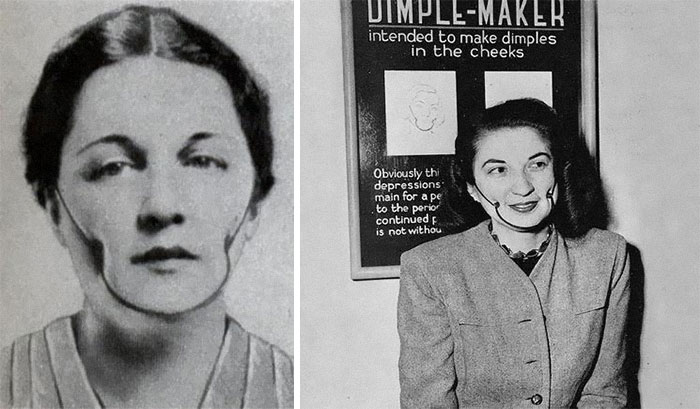 In 1936, Isabella Gilbert invented the Dimple-Maker. The machine consisted of a spring that fit around the face and two tiny knobs that pressed into the cheeks. I don't know what Isabella was thinning but the machine didn't work.
In 1936, Isabella Gilbert invented the Dimple-Maker. The machine consisted of a spring that fit around the face and two tiny knobs that pressed into the cheeks. I don't know what Isabella was thinning but the machine didn't work.
can totally imagine this being sold on wish today, and people buying it
They buy jade rollers for the skin! They’d buy the dimple maker at once!
Load More Replies...In 2021 people invented a magnetic device that doesn't let your mouth open more than 2mm! To make you stop eating and go on a diet! Just saying
A more up to date, and slightly less invasive, version of wiring someone's jaws shut. Yikes.
Load More Replies...I know someone who had pierced his cheeks. When he took the piercings out the holes ended up looking like dimples. Wouldn't recommend it though.
A few years ago there was a machine that shook the fat off you didn't hurt but didn't help people purchased these.
I love my dimples but I can't imagine putting myself into that torture if I hadn't had them 🙄
I have dimples, but unless I'm smiling really wide you can't see them. I have four: two on my cheeks, two on my chin(they're like on the side of the chin, if that makes sense).
Load More Replies... 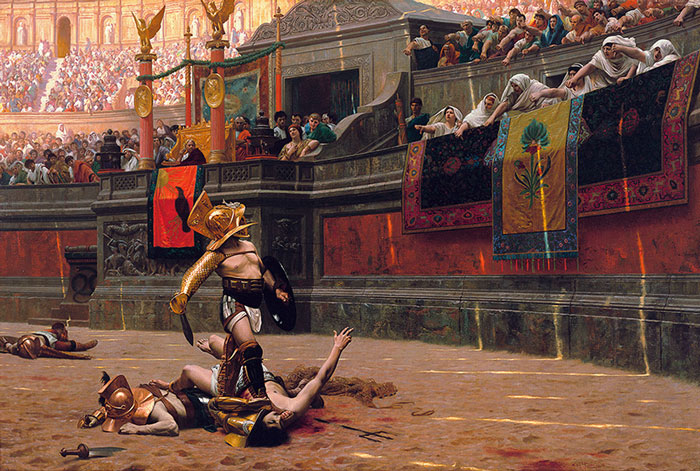 In ancient Rome many women would moisturize with the sweat of gladiators. Whiles of sweat were sold as souvenirs outside the fights. The sweat was thought to be an aphrodisiac.
In ancient Rome many women would moisturize with the sweat of gladiators. Whiles of sweat were sold as souvenirs outside the fights. The sweat was thought to be an aphrodisiac.
Makes sense since Gladiators were the equivalent of rock stars from today.
And if you got some of Mr. Crowe's sweat, would you not be entertained?
Load More Replies...It was olive oil that had been scrapped from the gladiator's body. Using olive oil as a skin conditioner was standard for romans. Just recycling really!
Load More Replies...Well. Legit question. If the women covered themselves in man sweat. Was this to make the women feel aroused by the smell? Or was this intended to make other men attracted to the women? In the second case, surely the women would be making themselves smell of men, which would surely attract gay men, which would kind of defeat the point? So many questions
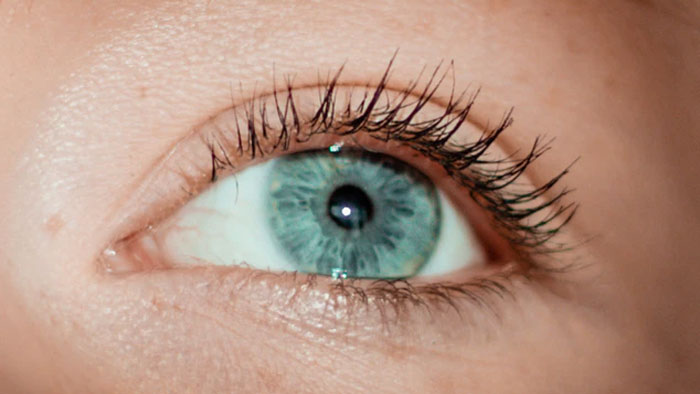 In the 1800s, eyelash transplants were all the rage. A specialist would sow the hair directly into the eyelid with a needle.
In the 1800s, eyelash transplants were all the rage. A specialist would sow the hair directly into the eyelid with a needle.
Nope nope nope. I've worn glue on eyelashes my whole life for dance performances and shows but it's not really "glue" glue, just slightly tacky stuff that peels off easy. And I get tattooing on eyebrows. But SEWING eyelashes onto your eyelids with a freaking needle?!?! What kind of fresh hell is this?! How many people lost an eye (or two) from this?! How many people got horrific infections? And perhaps most importantly- where are these eyelashes COMING FROM?! Did they hold down the servants and pluck them out?! Because that BLOODY HURTS let me tell you.
I would do that if I could be sedated during the procedure.
Load More Replies... 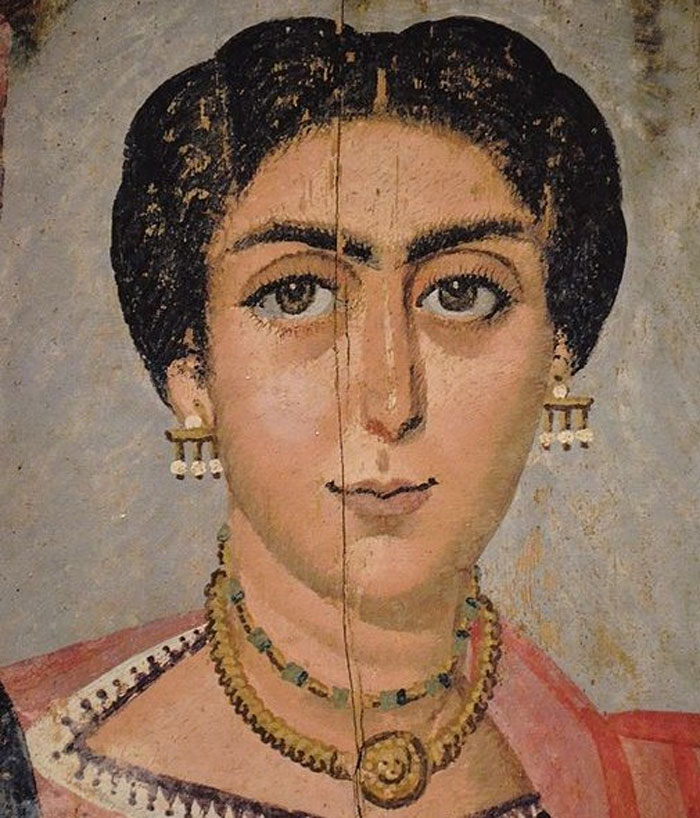 In ancient Greece the uni-brow was considered the sign of purity and intelligence. It was ideal to have eyebrows that melded together in the middle. Some women would darken their eyebrows with powder, while others would wear fake eyebrows made from goat's hair.
In ancient Greece the uni-brow was considered the sign of purity and intelligence. It was ideal to have eyebrows that melded together in the middle. Some women would darken their eyebrows with powder, while others would wear fake eyebrows made from goat's hair.
This image distinctly does not show a unibrow. Try looking up 19th century Persian artwork if you want to see epic unibrow!
Just widen her nose and add a bit of melanin and me and the painting could be twinning!
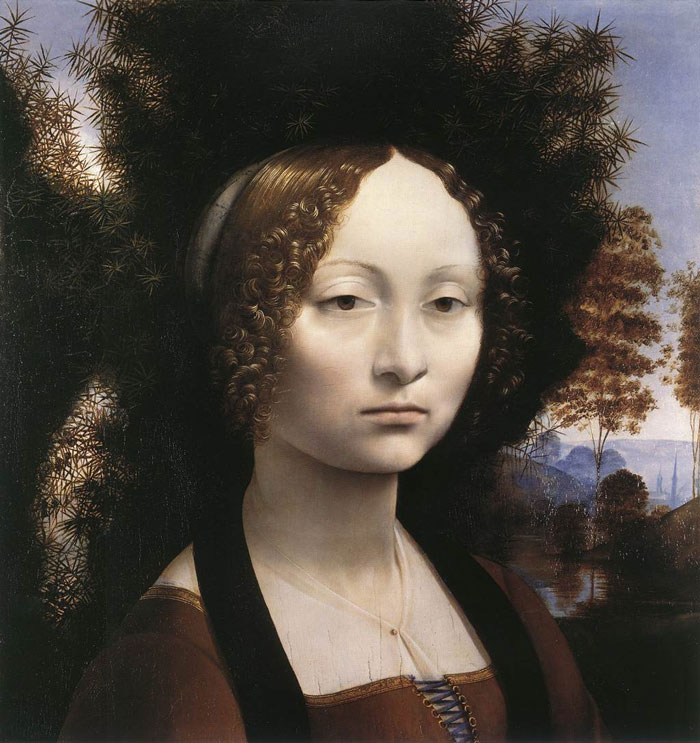 In the 1400s, Italian women wanted to have thin lips that were barely there. The paintings at the time didn't highlight or emphasize the lips in any way.
In the 1400s, Italian women wanted to have thin lips that were barely there. The paintings at the time didn't highlight or emphasize the lips in any way.
There has to be a century somewhere where I would have been considered attractive!
I have literally had some drunk chick try to pick a fight with me and while trying to get my attention called me "no lips", I would have thrived in both the thin lip era and the long forehead era.
You would have thought all that pee would have made them pucker. May be that's why most of lips were concealed in paintings.
The pee was in the Roman times. They didn't use pee in the 15th century.
Load More Replies...If you'll notice, they never seemed to have eyelashes, either, as well as very thin eyebrows. If you look at the Mona Lisa, she doesn't have ANY eyebrows.
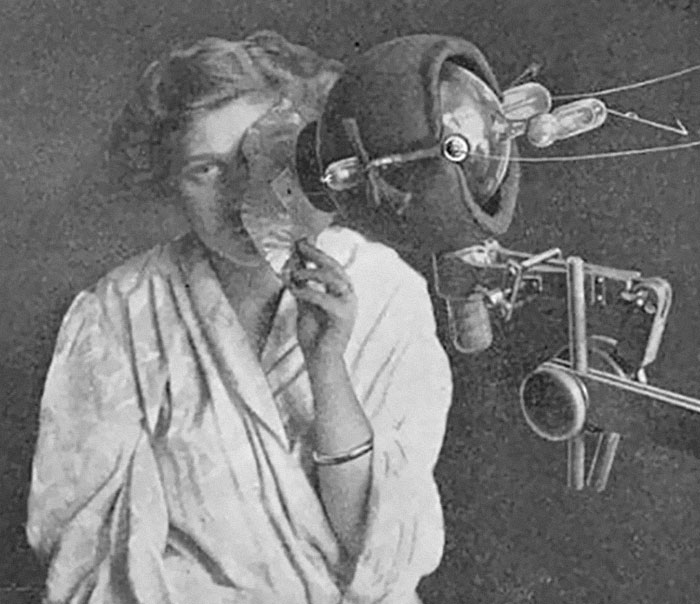 Shortly after the invention of the x-ray machine, people used the machine to treat acne, eczema and for hair removal. Some of the side effects included atrophy, ulcerations, and cancer.
Shortly after the invention of the x-ray machine, people used the machine to treat acne, eczema and for hair removal. Some of the side effects included atrophy, ulcerations, and cancer.
It's like the early microwaves that didn't have doors and chefs ended up slowly cooking their hands as they slid plates in and out of these wonderful new machines.
Seriously? I never heard of such. Such a bad idea.
Load More Replies...A lot of medical information was used a beautification products, gross misuse of a lot of drugs and fake machinery.
During WWII my dad was about 10 years and had psoriasis really bad. He said he could shake his pants legs and a shower of skin would come out the bottom. His mom took him to doctors that tried everything from coal tar baths to repeated full body xrays. He is very lucky he never developed cancer! He is 89!
My father had this done to him as a teen for acne. Fortunately, he didn't seem to suffer any lasting side effects. He lived to the age of 92.
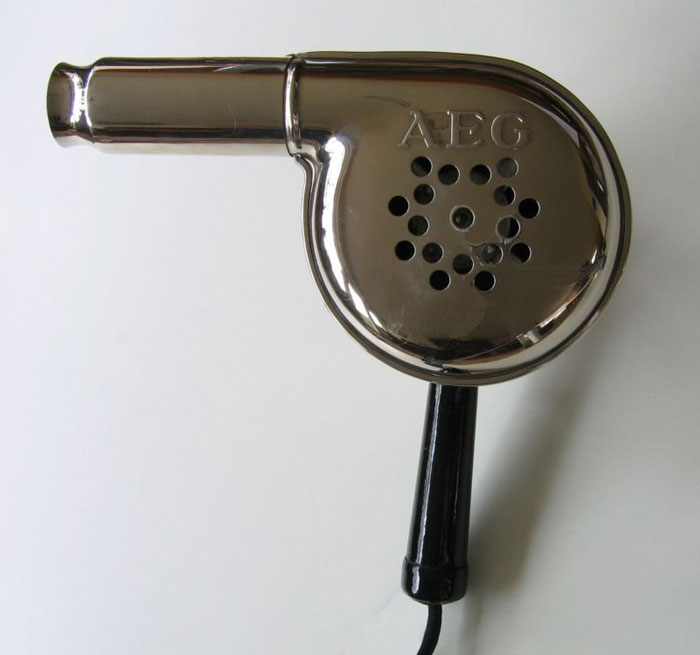 In the 1920s the portable hair dryer came on to the market. This was a more convenient alternative to the bulky hair dryers of the time. The device was very dangerous though and would cause burns, electrocutions, and death.
In the 1920s the portable hair dryer came on to the market. This was a more convenient alternative to the bulky hair dryers of the time. The device was very dangerous though and would cause burns, electrocutions, and death.
If anyone is wondering why, appliances of the time did not have a chassis ground connection (no third pin), nor did they have polarized plugs (there was a 50/50 chance of the metal chassis being live at mains voltage depending on how you plugged it in). This hadn't previously been a problem because 'regular people' hadn't been using electrical appliances much prior to the 1920s.
There is still insulation between the wiring and the "chassis," or the later grounding wires would short out. They are there in case of insulation failure. I have an unusual ability to detect a "live" surface without touching a ground and getting a shock - most people never notice them.
Load More Replies...Mainly because Americans insist on using them in the FREAKING BATHROOM!! Do as the Europeans do, never, ever have plugs in your bathroom, and use a hairdryer in the bedroom in front of a mirror like a normal person.
What kind of nonsense is this, first of all, what country is "Europe"? I live here and have been to many European countries - never saw a bathroom without a plug. We blowdry our hair in the bathroom just like this.
Load More Replies...It electrocuted me but I have beautiful hair at my funeral. *BEAMS from the grave*
Wait a century and see what people have to say about us sucking fat out of some bodies, and putting silicon in other bodies to change the shape of everything.
Makes you think - what dumb stupid things are we doing today that we will regret in the future. Not so long ago if you had the sniffles and went to your Doctor he would give you penicillin for 10 days, more or less to shut you up, he knew the sniffles would be gone in 10 days. This is why we now have antibiotic resistant germs .
Why on so many of these posts, am I no longer getting any pictures? I don't understand, other people are getting pics, n it's the same app, surely?.....
I’d be beautiful if I had only been born at a different time. And in the upper class. And didn’t die of some childhood disease.
In 1000 years there will be a list, number one would be "Implants" followed closely by steroids.
The inside of the mouth is considered vulgar/ disgusting in Japanese culture. The blackened teeth make the inside of the mouth less conspicuous. It's lessened up a bit in modern times, but you'll still notice that Japanese people will still cover their mouths when laughing, only smile without teeth, do this interesting little vacuum-bite thing when eating to ensure they aren't opening their mouths really wide, and think sharing stuff which has touched their mouths (such as a drink bottle) as extremely intimate.
So interesting. But, my goodness what we ladies would do to ourselves to achieve what "others" would think was beautiful!!!
Wait a century and see what people have to say about us sucking fat out of some bodies, and putting silicon in other bodies to change the shape of everything.
Makes you think - what dumb stupid things are we doing today that we will regret in the future. Not so long ago if you had the sniffles and went to your Doctor he would give you penicillin for 10 days, more or less to shut you up, he knew the sniffles would be gone in 10 days. This is why we now have antibiotic resistant germs .
Why on so many of these posts, am I no longer getting any pictures? I don't understand, other people are getting pics, n it's the same app, surely?.....
I’d be beautiful if I had only been born at a different time. And in the upper class. And didn’t die of some childhood disease.
In 1000 years there will be a list, number one would be "Implants" followed closely by steroids.
The inside of the mouth is considered vulgar/ disgusting in Japanese culture. The blackened teeth make the inside of the mouth less conspicuous. It's lessened up a bit in modern times, but you'll still notice that Japanese people will still cover their mouths when laughing, only smile without teeth, do this interesting little vacuum-bite thing when eating to ensure they aren't opening their mouths really wide, and think sharing stuff which has touched their mouths (such as a drink bottle) as extremely intimate.
So interesting. But, my goodness what we ladies would do to ourselves to achieve what "others" would think was beautiful!!!

 Dark Mode
Dark Mode 

 No fees, cancel anytime
No fees, cancel anytime 


































































